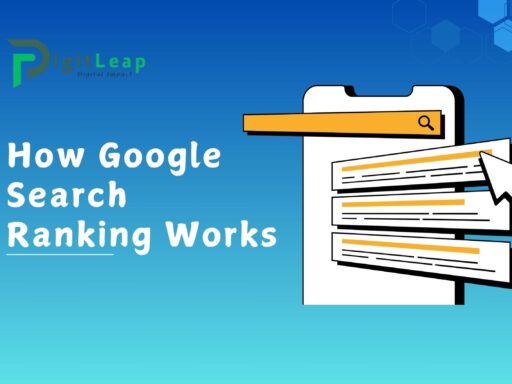Introduction
When starting a new partnership with SEO clients, understanding their needs, goals, and business landscape is essential. Knowing what questions to ask can set the stage for a fruitful relationship. If you don’t cover the right bases upfront, it can lead to missed opportunities and poor results.
This article outlines 15 crucial questions to ask your new SEO clients to ensure your SEO efforts align perfectly with their expectations. Whether you’re an experienced professional or new to SEO, these questions will help you gather all the necessary details to kickstart a successful SEO campaign. Let’s dive in!
1. What Are Your Business Goals?
Every SEO strategy should be closely tied to the client’s long-term and short-term business objectives. Do they want to increase brand awareness? Drive e-commerce sales? Or perhaps they’re focused on lead generation. The answer will guide how you structure their campaign and define success.
2. Who Is Your Target Audience?
Understanding the audience is key to effective SEO. Knowing the demographics, interests, and behaviors of the client’s ideal customers ensures that content, keywords, and marketing efforts are highly targeted.
3. What Are Your Top Products or Services?
Focusing on the client’s top-performing products or services helps prioritize SEO efforts. This information will enable you to optimize for high-conversion keywords and refine your strategy for maximum impact.
4. What Geographic Locations Are Important to You?
If your client operates locally or internationally, it’s critical to tailor SEO strategies accordingly. Asking about target locations helps in determining whether local SEO or broader SEO campaigns are required.
5. Have You Worked with an SEO Agency Before?
This question reveals their prior experiences, frustrations, or achievements with other agencies. Knowing their history can help you tailor your approach and avoid making the same mistakes.
6. What Are Your Expectations from SEO?
Clear expectations are crucial. Some clients may expect immediate results, while others may understand that SEO is a long-term process. Aligning on goals early ensures everyone stays on the same page.
7. What Keywords Are You Currently Targeting?
The client may already have a list of keywords they are ranking for or would like to rank for. Reviewing these keywords provides insight into their focus areas and competitors.
8. Who Are Your Top Competitors?
Competitor analysis plays a huge role in shaping your SEO strategy. By knowing who the client is up against, you can study competitors’ SEO tactics and find opportunities for improvement.
9. What Content Marketing Efforts Do You Have in Place?
Content is at the heart of SEO. Understanding what content marketing strategies the client currently employs allows you to identify gaps and opportunities for better content optimization.
10. Do You Have Any Technical SEO Issues?
Addressing technical SEO concerns upfront—such as slow website speeds, broken links, or crawl errors—is essential for smoother optimization. The client may have identified some issues already, which helps you address them quickly.
11. What Is Your Current SEO Performance?
Analyzing the client’s current SEO metrics, such as organic traffic, rankings, and conversions, provides a baseline. This helps in setting achievable benchmarks and evaluating future performance.
12. How Do You Measure Success?
Success means different things to different clients. Some may focus on rankings, while others prioritize traffic, conversions, or ROI. Understanding this helps you align your KPIs with the client’s expectations.
13. Do You Have Any Budget Constraints?
Knowing the client’s budget helps you set realistic goals and avoid unnecessary efforts. This question also allows you to suggest the best SEO strategy within their financial limits.
14. What Tools Are You Currently Using?
Many clients use tools like Google Analytics, SEMrush, or Ahrefs. Understanding their tech stack ensures you can integrate smoothly into their workflow and make the most of existing data.
15. Are There Any Legal or Compliance Requirements?
Some industries, like healthcare and finance, have strict compliance regulations that can affect SEO strategies. It’s essential to know these constraints before proceeding.
FAQs
1. Why Is It Important to Ask These Questions?
These questions help SEO professionals align their strategies with the client’s business goals, ensuring a smooth and successful partnership.
2. How Can I Use This Information Effectively?
By gathering insights from these questions, you can tailor your SEO approach, target the right keywords, and focus on areas that matter most to the client.
3. How Often Should SEO Performance Be Reviewed?
Monthly or quarterly reviews are ideal, depending on the client’s needs and campaign objectives. Regular reviews help adjust strategies and improve results.
4. What If a Client Has Unreasonable Expectations?
Set realistic expectations early on, explaining that SEO takes time to deliver results. Transparency helps build trust and reduces misunderstandings.
5. Should I Include the Client in the SEO Process?
Yes, involving the client ensures transparency and collaboration. Regular updates keep them informed and allow you to gather feedback.
6. What’s the Best Way to Manage Client Expectations?
Communicate openly and set realistic milestones. Provide regular progress reports and explain what’s achievable within specific timelines.
Conclusion
Asking the right questions is the foundation of every successful SEO campaign. With the insights from these 15 essential questions, you can build strategies that align with your client’s goals and deliver outstanding results. At DigitLeap, we believe in crafting customized SEO solutions that drive growth and foster long-term partnerships. Whether you’re just starting with a new client or refining your approach with an existing one, these questions will ensure you’re on the right track.






